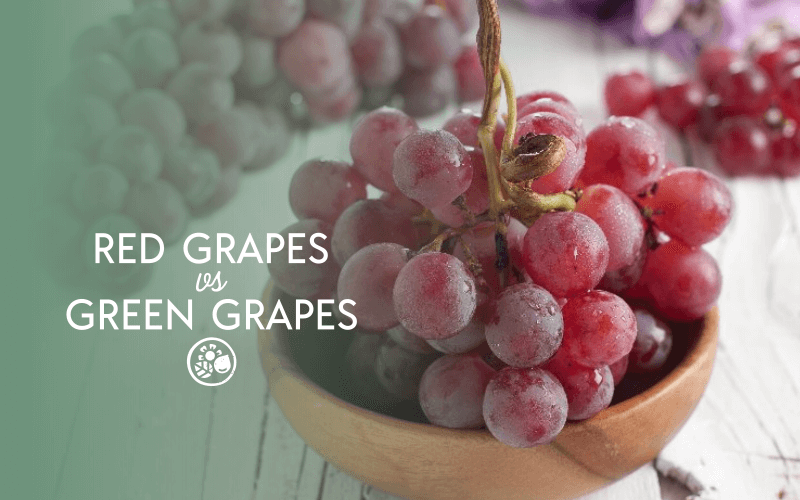Ever wondered if those juicy red grapes could be the key to a good night's sleep? If you're tossing and turning every night, maybe it's time to grab a bunch of red grapes and see what happens. Sleep is one of the most important things for our overall health, yet so many of us struggle to get enough of it. But what if the answer was as simple as snacking on some red grapes before bed? Let's dive into the science and find out if red grapes really do help you sleep.
Nowadays, sleep deprivation is a huge issue for millions of people around the globe. From stress to technology addiction, there are countless reasons why we're not getting the rest we need. But nature often has answers that we overlook. Red grapes, with their rich antioxidants and natural compounds, have been under the microscope for their potential sleep benefits. So, are they the magical fruit we've been searching for?
Let's break it down. Red grapes aren't just a delicious snack—they're packed with nutrients that could play a role in improving sleep quality. Whether you're a skeptic or a believer, the science behind this fruit might surprise you. Stick around as we explore everything you need to know about red grapes and their connection to better sleep.
Why Red Grapes Are the Talk of the Town
Red grapes have been stealing the spotlight lately, and for good reason. They're not just a tasty treat—they're also a powerhouse of nutrients that can positively impact your health. But what makes them so special when it comes to sleep? It all boils down to the natural compounds found in these little purple wonders.
Key Nutrients in Red Grapes
Let's take a closer look at what's inside red grapes that might help you sleep better:
- Resveratrol: This antioxidant is found in the skin of red grapes and has been linked to numerous health benefits, including improved sleep quality.
- Melatonin: Yes, you read that right. Red grapes contain small amounts of melatonin, the hormone that regulates sleep-w wake cycles.
- Vitamin C: Known for its immune-boosting properties, vitamin C also plays a role in reducing stress, which can improve sleep.
- Polyphenols: These plant compounds have anti-inflammatory properties that may contribute to better sleep.
So, when you bite into a red grape, you're not just enjoying its sweet flavor—you're also giving your body a dose of these powerful nutrients.
How Red Grapes Affect Sleep
Now that we know what's in red grapes, let's talk about how they actually affect sleep. The connection between red grapes and sleep goes beyond just being a healthy snack. Here's how these fruits could help you catch those much-needed Z's:
Resveratrol: The Sleep Superhero
Resveratrol, the star compound in red grapes, has been studied extensively for its potential to improve sleep quality. Research shows that resveratrol can help regulate the body's circadian rhythm, which is crucial for maintaining a healthy sleep schedule. By supporting your body's natural sleep-wake cycle, resveratrol may help you fall asleep faster and stay asleep longer.
Melatonin: Nature's Sleep Aid
Red grapes contain small amounts of melatonin, the hormone that tells your body when it's time to sleep. While the levels are not as high as in supplements, they can still contribute to better sleep. Eating red grapes regularly might help boost your body's natural melatonin production, making it easier to drift off at night.
Science Backed Evidence
When it comes to health claims, we need to back them up with science. Here's what the research says about red grapes and sleep:
Studies on Red Grapes and Sleep
A study published in the journal Scientific Reports found that consuming red grapes can improve sleep quality in adults. The study participants reported falling asleep faster and experiencing fewer sleep disturbances after incorporating red grapes into their diets. Another study published in Sleep Medicine highlighted the role of resveratrol in reducing sleep apnea symptoms, which can significantly improve overall sleep quality.
These findings suggest that red grapes are more than just a tasty snack—they're a potential sleep aid backed by scientific evidence.
How to Incorporate Red Grapes Into Your Diet
Now that you know the benefits, let's talk about how to add red grapes to your daily routine. Here are some creative ways to enjoy this sleep-boosting fruit:
- Snack on them: Keep a bowl of red grapes on your kitchen counter for easy access. They're perfect for a quick, healthy snack.
- Add them to salads: Throw some red grapes into your salad for a burst of sweetness and nutrition.
- Blend them into smoothies: Red grapes can add a unique flavor to your morning smoothie while boosting its nutritional value.
- Pair them with cheese: A classic combination that's both delicious and sleep-friendly.
Experiment with different ways to enjoy red grapes and find what works best for you.
Common Myths About Red Grapes and Sleep
There are a few misconceptions floating around about red grapes and their effects on sleep. Let's clear them up:
Myth 1: Red Grapes Are Just for Wine
While red grapes are the main ingredient in red wine, you don't need to drink wine to reap their sleep benefits. Eating the whole fruit provides all the nutrients without the alcohol, which can actually disrupt sleep.
Myth 2: All Grapes Are the Same
Not all grapes are created equal. Red grapes, in particular, have higher levels of resveratrol and other beneficial compounds compared to green or white grapes.
Other Sleep-Boosting Foods
While red grapes are a great option, they're not the only food that can help you sleep better. Here are a few other sleep-boosting foods to consider:
- Cherries: Like red grapes, cherries contain melatonin and can improve sleep quality.
- Almonds: Rich in magnesium, almonds can help relax your muscles and promote better sleep.
- Walnuts: Another great source of melatonin, walnuts can be a tasty bedtime snack.
- Bananas: Packed with potassium and magnesium, bananas can help you relax and fall asleep faster.
Incorporating a variety of these foods into your diet can create a well-rounded approach to better sleep.
Tips for Better Sleep
While red grapes can help, they're just one piece of the puzzle. Here are some additional tips for improving your sleep:
- Stick to a schedule: Go to bed and wake up at the same time every day, even on weekends.
- Limit screen time: Avoid screens at least an hour before bed to reduce blue light exposure.
- Create a relaxing bedtime routine: Take a warm bath, read a book, or practice meditation to wind down.
- Optimize your sleep environment: Keep your bedroom cool, dark, and quiet for the best sleep possible.
By combining red grapes with these sleep strategies, you'll be well on your way to better rest.
Conclusion: Time to Give Red Grapes a Try
So, do red grapes help you sleep? The answer seems to be a resounding yes. With their powerful antioxidants, natural melatonin, and other beneficial compounds, red grapes could be the key to unlocking better sleep. Whether you're snacking on them, blending them into smoothies, or pairing them with cheese, there are countless ways to enjoy this delicious fruit.
But don't stop at red grapes. Combine them with other sleep-boosting foods and healthy habits to create a comprehensive approach to better sleep. And remember, if you're still struggling, don't hesitate to talk to a healthcare professional. Your sleep is important, and you deserve to wake up feeling refreshed and energized.
So, what are you waiting for? Grab a bunch of red grapes and see if they make a difference in your sleep. And don't forget to share your experience in the comments below. We'd love to hear from you!
Table of Contents
- Why Red Grapes Are the Talk of the Town
- Key Nutrients in Red Grapes
- How Red Grapes Affect Sleep
- Resveratrol: The Sleep Superhero
- Melatonin: Nature's Sleep Aid
- Science Backed Evidence
- How to Incorporate Red Grapes Into Your Diet
- Common Myths About Red Grapes and Sleep
- Other Sleep-Boosting Foods
- Tips for Better Sleep


